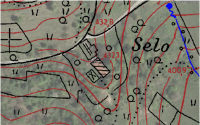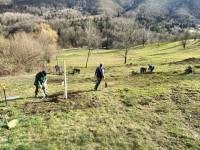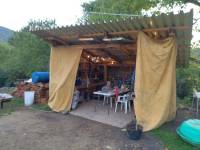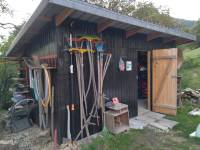Table of Contents
Rizoma
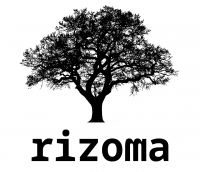
Zavod Rizoma, Institute for Artistic Production and Sustainable Development is a Slovenian NGO instigated to operate a programme of cultural, educational and social inclusivity projects on a permaculture farm in the east of Slovenia.
Re-imagining the farm as a rural center for contemporary arts and ecological practices we seek to develop and collaborate on projects which integrate cultural, environmental and techno-social elements. We also run residency and volunteering opportunities.
We are interested in the development of non-formal educational contexts, utilizing new creative and artistic approaches. We are also interested in digital skills projects which, innovative through creative experimentation and contribute positively to current environmental challenges. In particular digitisation in the areas of ecology, citizen science, sustainability and cultural heritage.
- Barbara Kukovec (Director and Founder)
- Rob Canning (Founder)
Registration number 8752079
latest @ rizoma
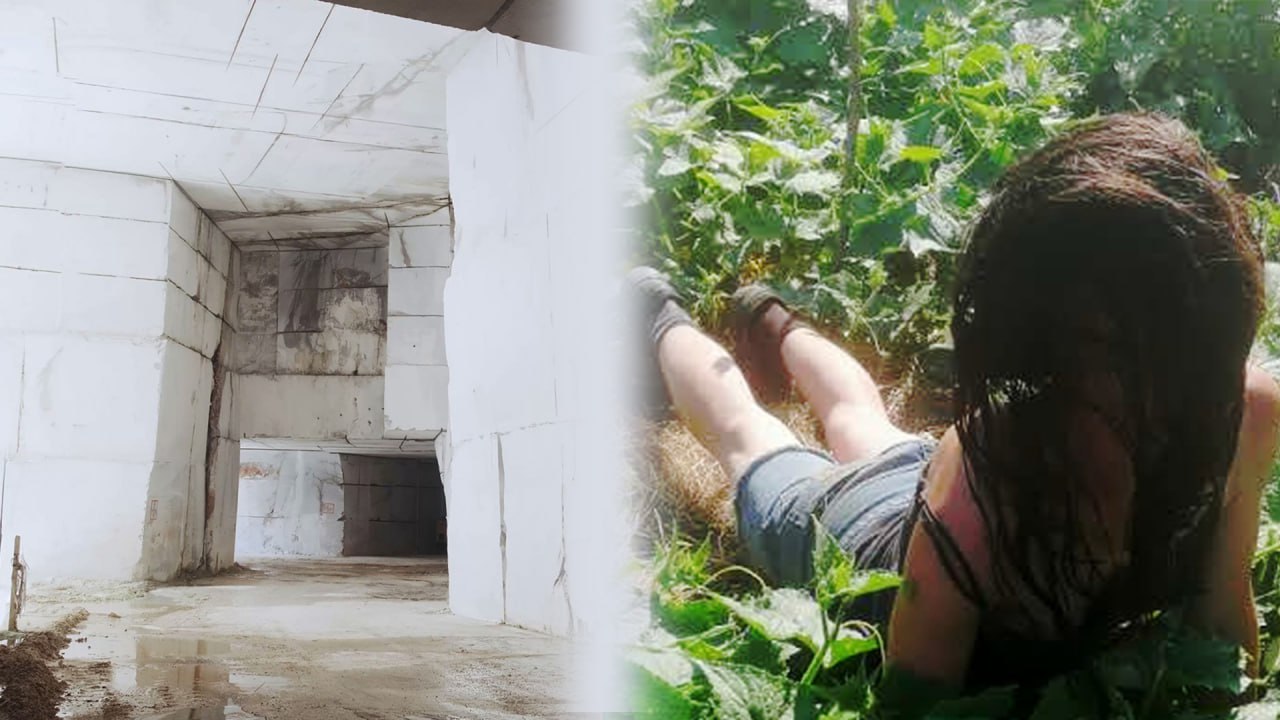 Feb 22 2023 Artist-led reading group project. Barbara Kukovec with NAGIB and KIBLA. The art of living on a damaged planet. Bralni krožek KIBLA + NAGIB: Umetnost življenja na uničenem planetu*
Feb 22 2023 Artist-led reading group project. Barbara Kukovec with NAGIB and KIBLA. The art of living on a damaged planet. Bralni krožek KIBLA + NAGIB: Umetnost življenja na uničenem planetu*
22.02.2023 17:00 more on the Kibla website.
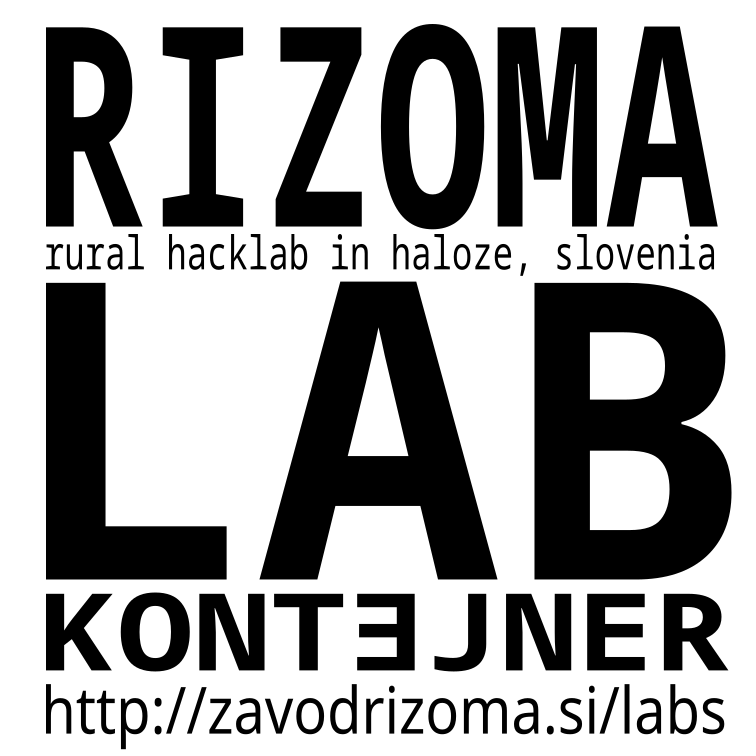 Jan 2023: OPEN CALL for kontejnerLab residencies.
Jan 2023: OPEN CALL for kontejnerLab residencies.
Rizoma Field Studio
Rizoma is our field studio for Arts, Technology, Permaculture in the hills of Haloze, near the Croatian border in south east Slovenia. While we are active in external collaborations and outreach projects, the bulk of our activities take place here. The site is 7 hectares of woodlands, grasslands and wilderness at 410m altitude and sits at the foot of the mountain Donacka Gora and the cliffs of Resenik. It is designated as a Natura2000 SSSI (Site of Special Scientific Interest). It is also our home. We host cultural activities, workshops, volunteers and artists in residence.
What you will find @ Rizoma
Ecology
In June 2019, a volunteer at Rizoma, student ecologist/ornothologist Manon Simonneau did a wonderful survey of birds, amphibians, reptiles and butterflies and started this document. With the help of future volunteers and contributors we hope to expand this document to a comprehensive study of all life and habitats in our immediate surroundings here at Selo. We also made some field recordings of birdsong for the Dawn Chorus Day 2021 The radio stream is here and in the menu sidebar.
Woodlands
In selo about half our 7 hectares are woodlands. There are mixed deciduous woodland with lots of chestnut and wild fruit trees and areas of single species woodland of Hazel and Oak. More here.
Gardens
Climate zone 7b
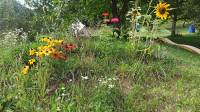 More about our gardens. Including: Garden Sensor Network, Planting & Harvesting Calendar, Forest Garden, No Dig Beds, Perennial Plants, Polytunnels, Coldframes, Garden Tools, Seed Saving etc.
More about our gardens. Including: Garden Sensor Network, Planting & Harvesting Calendar, Forest Garden, No Dig Beds, Perennial Plants, Polytunnels, Coldframes, Garden Tools, Seed Saving etc.
Grassland Meadows
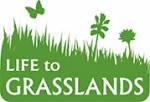 In 2018 we became a participant in the EU funded Life to Grasslands project. Much of our non-woodland hectares are now managed as dry grasslands. The key environmental challenge addressed by the project is the conservation of biodiversity in the agricultural cultural landscape. More information about our grassland management here.
In 2018 we became a participant in the EU funded Life to Grasslands project. Much of our non-woodland hectares are now managed as dry grasslands. The key environmental challenge addressed by the project is the conservation of biodiversity in the agricultural cultural landscape. More information about our grassland management here.
Orchards
At the beginning of 2019, with the help of the European funded Life to Grasslands project we planted over 50 fruit trees including lots of old varieties. The management plan for this orchard is to keep the trees widely spaced apart (~10 meters) and to let them grow to full size without the pruning associated with a traditional intensive orchard. The trees will grow old and the standing deadwood becomes an important habitat. More about the orchards and fruit trees here.
The KontajnerLab
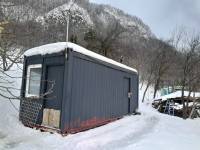 Our artist in residence space and hacklab: KontajnerLab.
Our artist in residence space and hacklab: KontajnerLab.
Compost Toilet & Humanure
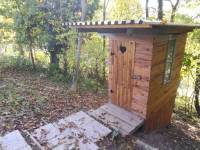 We use a compost toilet here. We don't flush valuable fresh drinking water down the drain, instead we create valuable compost (humanure) for our fruit trees. A future upgrade of this compost toilet was inspired by the urine powered synthesiser workshop led by Miranda Moss at Radiona. Urine powered toilet lights! … watch this space, Miranda will be back in selo soon hopefully.
The toilet shack was beautifully finished and crafted by our 2021 volunteers Thomas and Kathy :*
We use a compost toilet here. We don't flush valuable fresh drinking water down the drain, instead we create valuable compost (humanure) for our fruit trees. A future upgrade of this compost toilet was inspired by the urine powered synthesiser workshop led by Miranda Moss at Radiona. Urine powered toilet lights! … watch this space, Miranda will be back in selo soon hopefully.
The toilet shack was beautifully finished and crafted by our 2021 volunteers Thomas and Kathy :*
Humanure
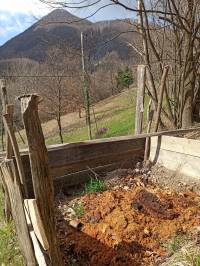 Humanure We make humanure and use it to fertiliser our fruit trees. On average we waste between 35 and 70 litres of fresh drinking water, per person, per day by flushing the toilet. If a family of 4 (as we are) flush every time we pee or poo we waste at least 50,000 litres of water per year.
Humanure We make humanure and use it to fertiliser our fruit trees. On average we waste between 35 and 70 litres of fresh drinking water, per person, per day by flushing the toilet. If a family of 4 (as we are) flush every time we pee or poo we waste at least 50,000 litres of water per year.
The Humanure Handbook is our/the humanure bible:
—-
Tree Nursery
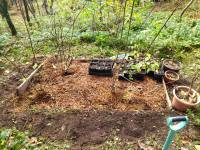 It is early days for our little tree nursery, but this is where we are starting to collect self-seeded volunteer trees we find popping up in the garden.
It is early days for our little tree nursery, but this is where we are starting to collect self-seeded volunteer trees we find popping up in the garden.
Library
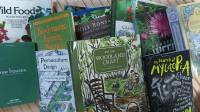 Details of our library here.
Details of our library here.
Compost, Wormery, Biodigester
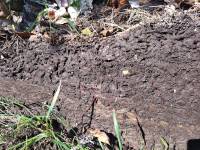 More on our composting here.
More on our composting here.
Summer Kitchen
Firepit
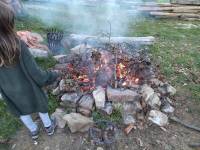 The firepit is the social heart of selo, especially during the summer and volunteering season.
It also the venue for our campfire congress / round-fire events.
The firepit is the social heart of selo, especially during the summer and volunteering season.
It also the venue for our campfire congress / round-fire events.
